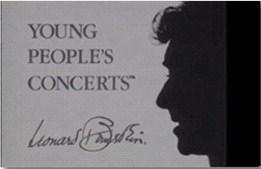GRANTS, NM Once again, the Cibola County Arts Council has generously provided another Young People’s Concert under the direction of Leonard Bernstein. The Art Council’s music appreciation program invites the public to join them every Friday at 4 p.m. This week’s program was “A Tribute to Teachers”, a concert revealing some of the admirable musicians that Bernstein studied under and that influenced his career.
“Teaching is probably the noblest profession in the world, the most unselfish, difficult, and honorable profession. But it's also the most unappreciated, underrated, underpaid, and underpraised profession in the world. And so today we are going to praise teachers.“ This was the introduction to the evening’s performance, “A Tribute to Teachers.” The teachers honored were those who composed, conducted and performed their own great works that influenced the one and only Leonard Bernstein.
Bernstein’s own teacher for twenty-five years, Serge Koussevitzky, led the magnificent Boston Symphony Orchestra, and he created the famous summer school at Tanglewood known as the Berkshire Music Center.
The orchestra honored Koussevitzky by playing a Russian piece that was a great favorite of his, the lovely, quiet prelude to Mussorgsky's opera Khovanshchina. This is a very short piece which describes the sunrise on the Moscow river. You might expect a Russian composition to be heavy and serious, and it was, but also has its lovely parts with flute and French horn, sounding more like a sunset than a sunrise.
It’s important to note how still and attentive the young musicians in the audience were, listening to learn. Use your imagination to picture young people of the ages grade school to teenagers, sitting quietly and paying rapt attention to the maestro, his lecture, and his orchestra.
Following the piece Bernstein explained how Koussevitzky taught him, with great interest in the music, the emotion and tempo it was to be played in. Bernstein acknowledged his teacher’s passion and added that passion is necessary to truly learn any subject. Without that intense interest, caring for the subject, you will not learn it well.
His next piece was by another of his teachers.
“It was the first work I ever conducted in public at all and led by my teacher Koussevitzky. It was the Second Symphony by Randall Thompson, the distinguished American composer who, by a curious coincidence, was also one of my teachers. I shall always be thankful to him for the insights he gave me into orchestration, into how instruments work, blend, and combine together into an orchestra.”
Next, Bernstein conducted the orchestra in playing the third movement from that same Symphony No. 2, the scherzo from Randall Thompson's Second Symphony, a very American piece with a jazzy, lilting tempo.
Bernstein then paid tribute to a list of his favorite teachers, a few who were in the audience. His gratitude was a lesson of the many topics to be focused on in the study of music and composition. For teaching him poetry and rhythm through a study of English, he thanked Philip Marson who taught him at Boston Latin School. He thanked Helen Coates for what he called his first important piano lessons. Ms. Coates also became his “overworked” secretary for almost twenty years. Renée Longy taught him the art of reading orchestra scores at the Curtis Institute, and Tillman Merritt taught him counterpoint and harmony at Harvard.
The next teacher to be paid tribute to was Walter Piston who taught at Harvard College and according to Bernstein gave him a “deep understanding of music”.
For his tribute the conductor chose a popular composition by Piston, the suite from his ballet, “The Incredible Flutist”. The ballet is a lively piece that includes tangos, fandangos, minuets, Spanish waltzes, and polkas.
An appropriate conclusion to “A Tribute to Teachers” was a tribute to one who gave Bernstein important lessons in conducting, Fritz Reiner, who taught at the Curtis Institute. Bernstein paid tribute to his former professor by conducting the Academic Festival Overture by Brahms, the piece he used to audition for Reiner to enter his class at Curtis.
The Brahms overture was appropriate for another reason. Brahms wrote this overture in honor of a school, the University of Breslau in Germany. He included in the composition four university songs that were very popular with the students.
So, you see, a musical education can be many things. It can include literature, ballet, jazz, history, community, and a passion for learning everything about music.

